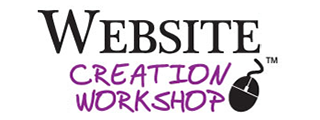Most people talk about Internet privacy in terms of their site getting hacked. But one of the very important simple security measures you must take, which is often overlooked and generally costs under $10/year, is your domain name privacy.
What is Domain Privacy?
Domain privacy is a service offered by a number of domain name registrars. A user buys privacy from the company, who in turn replaces the user’s info in the WHOIS with the info of a forwarding service (for email and sometimes postal mail, done by a proxy server). – Source: Wikipedia
Domain privacy protects your private information by hiding your home address, phone number, email address that you have associated with your credit card, that you used when purchasing your domain name.

You see, when you build a website, you first have to buy a domain name, and every domain name is associated with the registrant’s information that is made public.
Many solo or small business owners don’t bother to get a business address or a separate business phone number, or even a separate business email address; they simply use their residential address and personal phone number/email address for their business. So, that’s the information that gets submitted when you register your domain names.
See what happens next in this scenario? When somebody runs a search on your domain name, they will be able to easily find out your personal phone number and where you live!
This is why it’s important to pay for domain privacy when purchasing a domain name!
Most domain registrars offer this service as a small extra cost (generally $5-$9.) When you purchase the domain privacy option your private information will be hidden from the public. Instead of your sensitive personal information, contact information of the domain registrar will be displayed.
For that reason, I strongly believe adding domain privacy is totally worth it. If you don’t have domain privacy for your website, check with your domain registrar and add that option now to avoid the unnecessary risks of exposing your private personal information!
It’s better to always keep your private information safe.




































Privacy may soon be impossible if the proposed laws are enacted. Please read this:
https://www.respectourprivacy.com/
Thank you to both of you for giving us some information about technologie and updating the informations. Am learning slowly but surely and one day, maybe I will be ready to create my own website. For now, it looks like a jungle to me. Very busy with my physical life already, very less time to use computer and communicate with it. So, i keep a low profil but I enjoy Christina Hills sharing tips and knowledge and workshops that makes it so simple. 🙂
Vermeille,
Just take your time with all of it. But when you do decide to buy a domain name, do pay for the domain privacy
Peter,
thanks for sending that link. Although I would look more before putting my email or phone into that. Did you find any other articles on that?
Great advice, I am hoping I can go back. I recently purchased a new domain for my next business, without purchasing the privacy, as I didn’t do that last time. This time within a couple of days I’d had a phone call and two emails from people wanting to build my website for me. Not impressed, so can support the recommendation about privacy.
Leeanne,
Yes you can go back and update that later
Very informative, valuable and useful information.
KB Johnson, Ohio
KB,
Glad you liked it! Just let me know what other info you are looking for, and I’ll write a blog post
Thanks Christina! So true…Another thing to note is that it is wise to get a domain name directly through a domain registrar as opposed to doing it through the website host for two reasons: 1) You are not tied to them if you want to switch providers or cancel them and try to get your domain name transferred, and 2) you won’t have people trying to sell you website creation/upgrade services (sounds like I’ve been there, doesn’t it?). Here’s a link for some good, trusted registrars: http://www.digitaltrends.com/computing/best-domain-name-registrars/
Have a great trip, and thanks for all you do!
Gayle,
Thanks for your comments about not registering your domain name at the same place you get your hosting. That is what I believe too and what I teach.